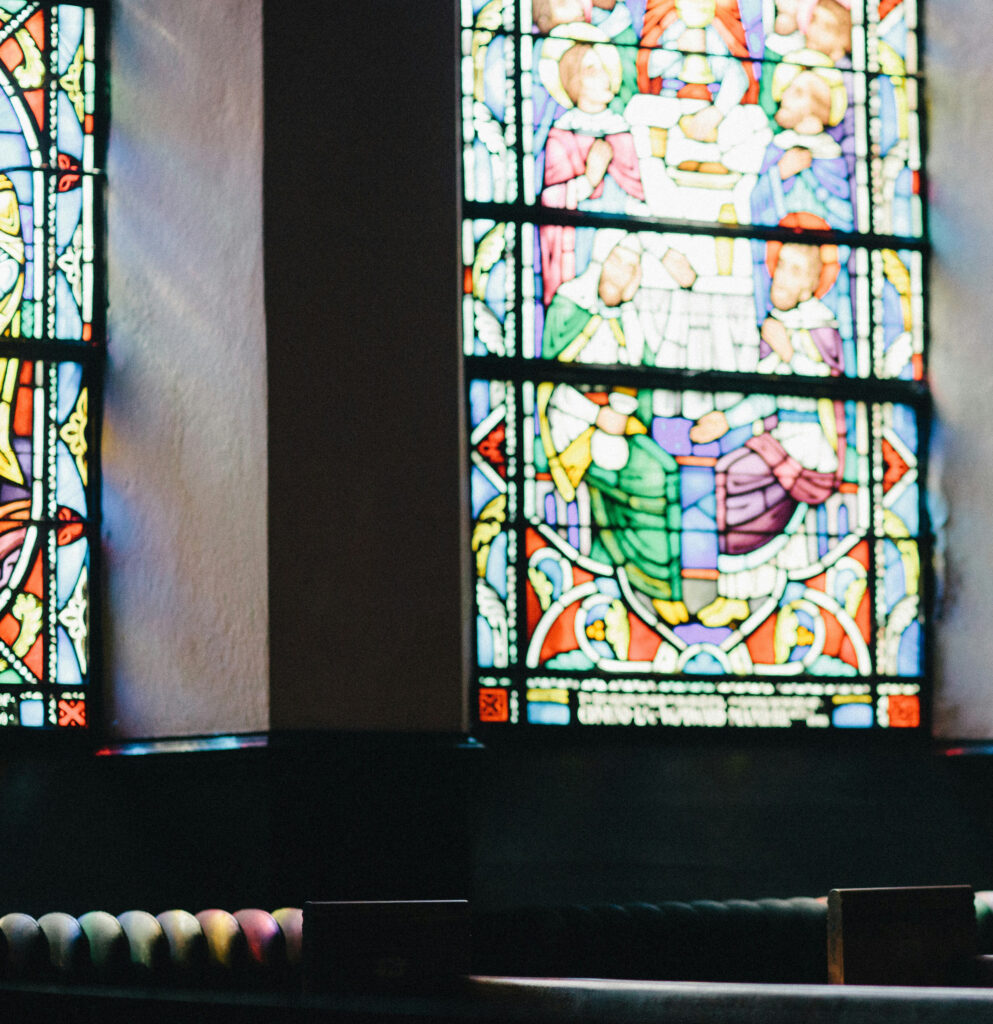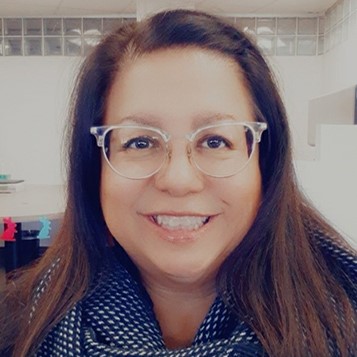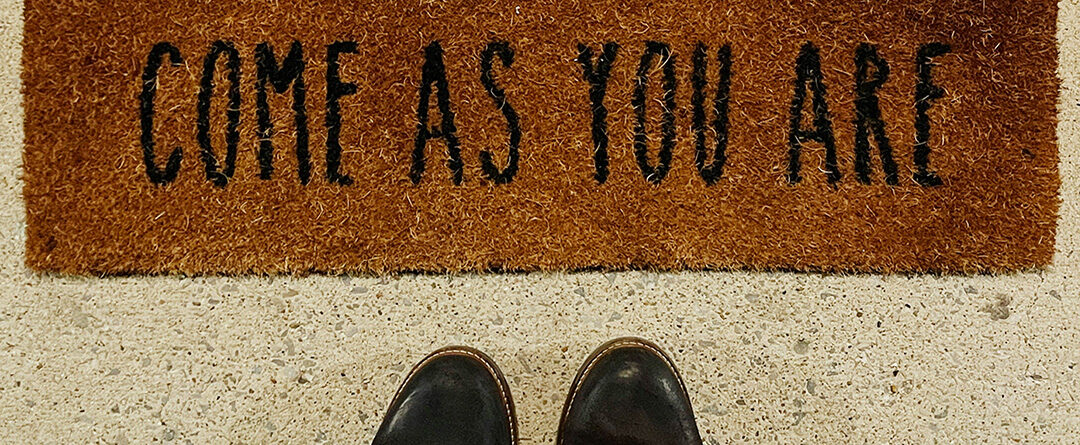by Wanda Frenchman
I was raised in a non-Christian, indigenous home by my Lakota mother and grandparents. We didn’t attend church. We did practice the Lakota ceremony, and I was taught at an early age about Tunkasila (tunkashila) or Grandfather the Creator. We prayed to Tunkasila and gave gratitude for food, family, good weather, good health, and our friends. My maternal grandparents were Catholic residential school survivors from Pine Ridge, South Dakota. They were forced to become Catholic, go to Mass, pray to God, and learn about a white Jesus and his teachings. As they became adults, they were not religious and didn’t attend church. I was taught that church was for white people and they worship a white Jesus, none of which sound appealed to me.
In junior high school, I attended youth group at a local Native Presbyterian church where my mom worked. She had become friends with the pastor, a non-native man well-known to the local community. My twin sister and I attended youth outings with other Native youth. We weren’t taught anything about church or Christianity during these outings; it was just a time to be with other kids. I can say that was my first real introduction to organized religion. We were welcome because we were Native youth.
My next introduction to organized religion would be by my mother when she became ordained in the Evangelical Lutheran Church in America. She lived in San Francisco at that time and took her first call in Cherokee, North Carolina. I watched from afar in Arizona as she developed a Lutheran church for the Cherokee people. All people were welcome, not just Lutherans. She made big meals and fed all who showed up. She is the one who taught me how food binds our community together. We share our lives over plates of food, not just eating but preparing and cooking meals. I grew up in the kitchen with my grandmother and aunties, learning their recipes and visiting with them.
 Pastor MaryLouise, my mom, came back to Phoenix, she found Grace Lutheran Church where she invited me to come to service one Sunday. I went to church but was confused and anxious the whole time. I didn’t understand what was going on, what communion was, and what the liturgy meant. I enjoyed the sanctuary with its beautiful stained glass windows and pipe organ. I met a few people that day because my mom knew most of them by then, and they were friendly. I can say with certainty if I had walked off the street, I wouldn’t have met anyone, partly because I can be shy in unfamiliar surroundings and partly because the people in the church only talked to me because of my mother.
Pastor MaryLouise, my mom, came back to Phoenix, she found Grace Lutheran Church where she invited me to come to service one Sunday. I went to church but was confused and anxious the whole time. I didn’t understand what was going on, what communion was, and what the liturgy meant. I enjoyed the sanctuary with its beautiful stained glass windows and pipe organ. I met a few people that day because my mom knew most of them by then, and they were friendly. I can say with certainty if I had walked off the street, I wouldn’t have met anyone, partly because I can be shy in unfamiliar surroundings and partly because the people in the church only talked to me because of my mother.
I decided to keep going to church at Grace. I looked forward to the consistency of meeting at the same time and seeing the same people each week. I looked forward to coffee hour with its never-ending coffee, sweet treats, and conversation. I joined the Women of the ELCA group and took the new member classes. I didn’t understand what joining a church meant, and the new member classes didn’t help that much. It was a three or 4-part series held by a member after church for 30 minutes with other prospective new members. We learned the history of the building and all the ministry groups that we could join, and when other Bible study opportunities were available but nothing about Lutheran theology. What I did know was that I was now part of a community of people, of believers in God and followers of Jesus. They welcomed me by getting me involved, being friendly, initiating conversation, and showing me grace when I didn’t understand what the service elements were.
Now that I am a leader in my ministry, I look back on my early experiences with the congregation at Grace. The kindness afforded to me extends to newcomers to our ministry. My job is more challenging because we have to show Indigenous people that we’re not the church that hurt their ancestors. I am grateful to have been shown this by those who may not have understood my reluctance to attend church for all those years. When new people come to our services, if they are native, we always introduce our tribes and where we come from. In fact, many times when I’m out meeting new people, I fight the urge to introduce my family name and tribe to everyone I meet. I believe that letting other Native people know it’s okay to be in our worship service because God loves them too is the most important way I can welcome them to my community. If you think long enough about it, I bet there is one single most important way that you can welcome new people to your community.
I believe that, in many ways, Lutheran people welcome newcomers to your churches, groups, circles, and ministries in your Lutheran way. I have learned that a distinct Lutheran culture involves food, Oley jokes, traditions, songs, and pride in being Lutheran. Imagine what it’s like for someone who has no idea who Ole is, why those jokes are funny, and how that might make them feel when they’re told at coffee hour after church. I am saying that if your church says all are welcome, then make people feel welcome.
Jesus said in Matthew 25:40, “‘Truly I tell you, just as you did it to one of the least of these brothers and sisters of mine, you did it to me.’” In reference to feeding, clothing, and welcoming strangers. When we truly welcome strangers into our Lutheran community, I believe it’s important to show them the beauty of Lutheranism with grace and forgiveness and to meet people where they are. We as a church can work on inclusion by accepting newcomers and their traditions, culture and heritage, even if it looks different from what we’re used to. I believe the future of the Lutheran church is going to depend on accepting all people, not just welcoming them.
 Wanda K. Frenchman is an Indigenous leader in the ELCA. She is a member of the Oglala Lakota (South Dakota) and Lenape (Oklahoma) tribes and serves as the vicar for Native American Urban Ministry in Phoenix, Arizona. The ministry serves all urban Natives in Phoenix, providing a community for believers and traditional culture to come together for spiritual growth. She is currently a student at Pacific Lutheran Theological Seminary in the new TEIL (Theological Education for Indigenous Leaders) Program, with the hopes of taking over leadership for NAUM. She is a Mission Developer and Fund for Leaders Mission Developer Scholarship winner in 2021. She has a twin sister, Yolanda and is the daughter to the Rev. Mary Louise Frenchman. Her passions include playing competitive billiards, doing yoga, reading, traveling, bible study and attending Native American powwows and ceremonies.
Wanda K. Frenchman is an Indigenous leader in the ELCA. She is a member of the Oglala Lakota (South Dakota) and Lenape (Oklahoma) tribes and serves as the vicar for Native American Urban Ministry in Phoenix, Arizona. The ministry serves all urban Natives in Phoenix, providing a community for believers and traditional culture to come together for spiritual growth. She is currently a student at Pacific Lutheran Theological Seminary in the new TEIL (Theological Education for Indigenous Leaders) Program, with the hopes of taking over leadership for NAUM. She is a Mission Developer and Fund for Leaders Mission Developer Scholarship winner in 2021. She has a twin sister, Yolanda and is the daughter to the Rev. Mary Louise Frenchman. Her passions include playing competitive billiards, doing yoga, reading, traveling, bible study and attending Native American powwows and ceremonies.


Very moving story. Thank you for sharing
Thank Wanda for sharing your family story. I live in Southern MN and our local congreation went to Pine Ridge and continue to support the ministry there. At coming up 85 this Dec. I support Pine Ridge ministries and read about our unfortunate past and treatment of YOUR native family. God bless the great creator who sent his son for ALL.
Wanda, Thanks for sharing this piece of your journey. My hope for the church is that we can CELEBRATE all people, not simply welcome them. I appreciate your writings, and hope that our paths will cross again in the future.
Having recently joined the Women of the ELCA board and meeting inspiring colleagues, I loved reading about your Faith journey. It is important to keep your culture alive as you connect with others. I have visited the Navajo and Zuni reservations many times and admire how they maintain their culture yet adopt Christianity also.
Dear Vicar Wanda, thank you for sharing your story with us! I am thankful that things are slowly changing for our Native American sisters and brothers. I agree with your last sentence: “I believe the future of the Lutheran church is going to depend on accepting all people, not just welcoming them.”
Dear Vicar Wanda, you reflect to us what we look like to people not accustomed to our Lutheran ways. Thank you for that. Forgive us for our failings in not welcoming you or understanding another perspective. I praise God that you are willing to walk with us and help us follow a better way. Like Jesus did.